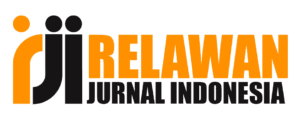Leadership Values and Government Ethics in The Character of Tobirama Senju: Reflections for Leaders of Today
Abstract
This study examines the leadership values and governance ethics reflected in the character of Tobirama Senju, a fictional character from the Naruto series, as a reflection and inspiration for today's leaders. Tobirama Senju is known as a firm, innovative leader, and has a high commitment to justice and stability of government. Through a qualitative-descriptive approach, this study analyzes the various actions, decisions, and policies taken by Tobirama in the context of a fictional world, then relates them to the theories of leadership and ethics of modern government. The results of the analysis show that Tobirama not only prioritizes the aspect of power, but also balances it with the principles of morality, transparency, and social responsibility. Values such as integrity, justice, policy innovation, and concern for the welfare of the community are the main foundations of his leadership. The study also highlights the relevance of Tobirama's character as an adaptive and ethical leadership model in the midst of the challenges of the times, and provides recommendations for today's leaders to internalize these values in government practice. Thus, this research contributes to enriching the discourse of government science through an interdisciplinary approach that combines fictional character analysis with real needs in contemporary governance.
References
Ansell, C., & Torfing, J. (2023). Handbook on theories of governance. Edward Elgar Publishing.
Bass, B. M., & Riggio, R. E. (2023). Transformational leadership. Psychology Press. The Oxford handbook of public accountability (pp. 1–22). Oxford University Press.
Bovens, M. (2019). Public accountability. In M. Bovens, R. E. Goodin, & T. Schillemans (Eds.),
Braun, V., & Clarke, V. (2022). Thematic analysis: A practical guide. Sage.
Burns, J. M. (2024). Transformational leadership. Harper Perennial.
Creswell, J. W., & Poth, C. N. (2023). Qualitative inquiry and research design: Choosing among Five Approaches (5th ed.). Sage.
Dwiyanto, A. (2023). Bureaucratic reform in Indonesia: Challenges and opportunities. Gadjah Mada University Press.
Guba, E. G., & Lincoln, Y. S. (2023). Competing paradigms in qualitative research. In N. K.
Denzin & Y. S. Lincoln (Eds.), Handbook of qualitative research (pp. 105–117). Sage.
Heifetz, R. A., & Linsky, M. (2023). Leadership on the line: Staying alive through the dangers of leading. Harvard Business Review Press.
Huang, X., & Lee, Y. (2023). Ethical leadership and employees' pro-social rule-breaking behavior. Journal of Applied Psychology, 108(5), 112–129. https://doi.org/10.1037/apl0000987
Johnson, R. (2024). Kantian ethics in public administration. Journal of Public Affairs Ethics, 12(3), 45–60.
Krippendorff, K. (2019). Content analysis: An introduction to its methodology (4th ed.).. Sage
Liu, C., Zhang, Y., & Wang, Z. (2023). Pandemic leadership: Is it just a matter of good and bad? Journal of Contingcies and Crisis Management, 31(2), 101–115. https://doi.org/10.1111/1468-5973.12425
Mardiasmo, D., Pratolo, S., & Sari, R. N. (2023). Ethical failure in Southeast Asian public policy. Asian Governance Review, 8(2), 112–129. https://doi.org/10.1016/j.agr.2023.02.004
Moore, M. H. (2020). Creating public value: Strategic management in government. Harvard University Press.
Northouse, P. G. (2023). Leadership: Theory and practice. Sage.
Rawls, J. (2020). A theory of justice: Revised edition. Harvard University Press.
Suhartono, T. (2021). Popular culture and the science of government: A critical review. Journal Indonesian Government Science, 9(1), 22–39. https://doi.org/10.22146/jipi.2021.9.1.22 Transparency International. (2024). Global corruption barometer 2024. https://www.transparency.org
Uhl-Bien, M., & Arena, M. (2024). Complexity leadership. Leadership Quarterly, 35(1), 101–115. https://doi.org/10.1016/j.leaqua.2023.101115
Van Quaquebeke, N., & Schmerling, A. K. (2020). Leadership in fiction. Academy of Management Review, 45(4), 846–860. https://doi.org/10.5465/amr.2020.0012
Wang, D., & Kim, K. (2023). Leader integrity and ethical leadership behavior: A theory of planned From a behavioral perspective. Journal of Business Ethics, 186(3), 789–804. https://doi.org/10.1007/s10551-021-04869-9
Yamamoto, K. (2022). Political philosophy in Naruto. Journal of Popular Culture Studies, 30(4), 78– 95. https://doi.org/10.1111/jpcs.2022.30.4.78
Yin, R. K. (2023). Case study research and applications: Design and methods (6th ed.). Sage.
Zhang, J., Wang, Y., & Li, F. (2022). Executives' unethical behaviour: A bibliometric analysis. Journal of Business Ethics, 180(2), 345–360. https://doi.org/10.1007/s10551-021- 04939-y
Copyright (c) 2025 Journal of Governance and Local Politics (JGLP)

This work is licensed under a Creative Commons Attribution-NonCommercial-NoDerivatives 4.0 International License.










